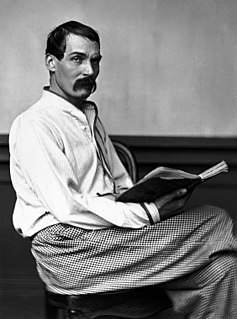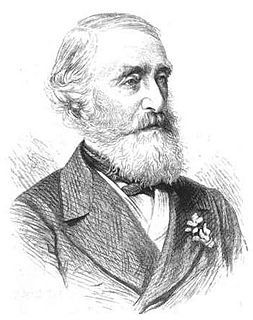Top 505 Witty One Liners Quotes & Sayings - Page 9
Explore popular Witty One Liners quotes.
Last updated on April 15, 2025.
Satirical writers and speakers are not half so clever as they think themselves, nor as they are thought to be. They do winnow the corn, it is true, but it is to feed upon the chaff. I am sorry to add that they who are always speaking ill of others are also very apt to be doing ill to them. It requires some talent and some generosity to find out talent and generosity in others, though nothing but self-conceit and malice are needed to discover or to imagine faults. It is much easier for an ill-natured man than for a good-natured man to be smart and witty.
Todd's mother had several children by different fathers, and Todd [Willingham] had been abandoned in California. ... He's a good-looking man. He was a witty man, you know? Funny, caring. He wasn't arrogant, but he was kind of set in his ways. If he thought something, it was one way. You could show him an alternative, but he was still going to stick by his particular view. But I could see how to women he could be a very charming, good-looking guy, especially when he was younger.
Birdscapes moves rather like those swallows, dipping and swerving to pick up all sorts of items of interest. Mynott tells plenty of good birding tales, but these serve mainly to set off trains of reflection. . . . Reading Birdscapes is like going birding with a learned, witty, and somewhat irreverent companion who isn't satisfied just to check things off. . . . [D]elightful to read on a journey or a housebound day, and [opens] fascinating new horizons for anyone who wants to enlarge his or her interest in birds.
Quotation... A writer expresses himself in words that have been used before because they give his meaning better than he can give it himself, or because they are beautiful or witty, or because he expects them to touch a cord of association in his reader, or because he wishes to show that he is learned and well read. Quotations due to the last motive are invariably ill-advised; the discerning reader detects it and is contemptuous; the undiscerning is perhaps impressed, but even then is at the same time repelled, pretentious quotations being the surest road to tedium.
Most men will not swim before they are able to.' Is not that witty? Naturally, they won't swim! They are born for the solid earth, not for the water. And naturally they won't think. They are made for life, not for thought. Yes, and he who thinks, what's more, he who makes thought his business, he may go far in it, but he has bartered the solid earth for the water all the same, and one day he will drown.
Liverpool's grand opera also gave us some light comedy - on hearing the news that the house of goalkeeper Pepe Reina was burgled, and his Porsche stolen, while he was heroically saving penalties at Anfield, fans took a typically witty line: police were said to be interviewing a man from the West London area, a certain Frank Lampard, whose whereabouts on Tuesday between 7.45pm and 10.15pm are unknown. Indeed.
I realized that for many people attending a reading is like watching television at the end of a long day. They don't want to be sad but to laugh. Chances are they'll pick the sitcoms over the horror movies. So I learned that, while one's larger body of fiction can have quite a bit of sadness and conflict and tragedy in it , in a reading environment, the average audience member seems able to tolerate only a little bit of sadness. They'd much rather the reading be sexy, funny, and witty. Life is hard these days. There's more than enough sadness in the world, so I can't blame them.
For such is the nature of men, that howsoever they may acknowledge many others to be more witty, or more eloquent, or more learned, yet they will hardly believe there be many so wise as themselves, for they see their own wit at hand, and other men's at a distance. But this proveth rather that men are in that point equal, than unequal. For there is not ordinarily a greater sign of the equal distribution of any thing than that every man is contented with his share.
I came in rather late in the casting process of Reaper. I believe they had all the other roles cast. They were having trouble finding the devil. They had seen almost 100 actors for the role. I got the script and I liked it - it was clever and witty and very, very funny, and a nice, fresh take on an old story. I went in and did a scene for the producers, the kitchen scene from the pilot where I'm cooking a chicken-fried steak. At the end of it, they all had a smile on their face, and they realized they had found their devil.
Plainly, this unwillingness to give ground even on unimportant disagreements is the symptom of some deepseated insecurity, as was my one-time fondness for making teasing remarks (which I amended when I read Anthony Powell's matter-of-fact observation that teasing is an unfailing sign of misery within) and as is my very pronounced impatience. The struggle, therefore, is to try and cultivate the virtuous side of these shortcomings: to be a genial host while only slightly whiffled, for example, or to be witty at the expense of one's own weaknesses instead of those of other people.
The term "rational" and its variants (rationality, rationalism) are used in a lot of contexts in economic debate, both positively and negatively, but nearly always sloppily or dishonestly. A specimen I've seen on more occasions than I can count is the line (usually presented with a sense of witty originality) "if you are opposed to economic rationalism, you must be in favor of economic irrationalism"... I've come to the conclusion that the word "rational" has no meaning that cannot better be conveyed by some alternative term and that the best advice is probably to avoid it altogether.
Patronizing the Arts is a brilliantly nuanced assessment of why universities must become art patrons. Learning from the twentieth-century university's embrace of Big Science, Garber argues that twenty-first-century universities must rigorously devote their attention to Big Art. Provocative, witty, and layered, Patronizing the Arts cogently demonstrates the advantages for both art and the university in this new and radical alliance.
M. J. Putney's writing has always been magical; now that she has turned her hand to the telling of a fantasy tale, it sparkles on the page. Stolen Magic has to be one of the most delightful reads of the year, a witty, finely crafted tale that enchants from beginning to end. As always, Putney's intelligent wordsmithery, scholarship, eye for detail, and ability to bring to life irresistible characters add up to enjoyment on every page. Fast-moving and fun!
[Shahrazad] had perused the books, annals and legends of preceding Kings, and the stories, examples and instances of by gone men and things; indeed it was said that she had collected a thousand books of histories relating to antique races and departed rulers. She had perused the works of the poets and knew them by heart; she had studied philosophy and the sciences, arts and accomplishments; and she was pleasant and polite, wise and witty, well read and well bred.
Yet as I cast my eye over the whole course of science I behold instances of false science, even more pretentious and popular than that of Einstein gradually fading into ineptitude under the searchlight; and I have no doubt that there will arise a new generation who will look with a wonder and amazement, deeper than now accompany Einstein, at our galaxy of thinkers, men of science, popular critics, authoritative professors and witty dramatists, who have been satisfied to waive their common sense in view of Einstein's absurdities.
It's late, I'm tired, and your cigarettes are giving me a headache," I growled. "I suppose that's fair." He drew in on the cigarette and let out the smoke. "Some women think they make me look sexy." "I think you smoke them so you have something to do while thinking up your next witty line." He choked on the smoke, caught between inhaling and laughing. "Rose Hathaway, I can't wait to see you again. If you're this charming while tired and annoyed and this gorgeous while bruised and in ski clothes, you must be devastating at your peak.
I'm going to show you the real New York - witty, smart, and international - like any metropolis. Tell me this: where in Europe can you find old Hungary, old Russia, old France, old Italy? In Europe you're trying to copy America, you're almost American. But here you'll find Europeans who immigrated a hundred years ago - and we haven't spoiled them. Oh, Gio! You must see why I love New York. Because the whole world's in New York.
Spread the glad tidings that it will not disappoint Miss Heyer's many admirers. Judging from the letters I've received from obviously feeble-minded persons who do so wish I would write another These Old Shades, it ought to sell like hot cakes. I think myself I ought to be shot for writing such nonsense, but it's questionably good escapist literature and I think I should rather like it if I were sitting in an air-raid shelter, or recovering from flu. Its period detail is good; my husband says it's witty---and without going to these lengths, I will say that it is very good fun.
Sir, money, money, the most charming of all things; money, which will say more in one moment than the most elegant lover can in years. Perhaps you will say a man is not young; I answer he is rich. He is not genteel, handsome, witty, brave, good-humored, but he is rich, rich, rich, rich, rich -that one word contradicts everything you can say against him.
The mass media causes sexual misdirection: It prompts us to need something deeper than what we want. This is why Woody Allen has made nebbish guys cool; he makes people assume there is something profound about having a relationship based on witty conversation and intellectual discourse. There isn't. It's just another gimmick, and it's no different than wanting to be with someone because they're thin or rich or the former lead singer of Whiskeytown.
We cannot see how the evidence afforded by the unquestioned progressive development of organised existence-crowned as it has been by the recent creation of the earth's greatest wonder, MAN, can be set aside, or its seemingly necessary result withheld for a moment. When Mr. Lyell finds, as a witty friend lately reported that there had been found, a silver-spoon in grauwacke, or a locomotive engine in mica-schist, then, but not sooner, shall we enrol ourselves disciples of the Cyclical Theory of Geological formations.
I am neither Christian enough nor charitable enough to like anybody just because he is alive and breathing. I want people to interest or amuse me. I want them fascinating and witty or so dul as to be different. I want them either intellectually stimulating or wonderfully corny; perfectly charming or hundred percent stinker. I like my chosen companions to be distinguishable from the undulating masses and I don't care how.
In every civilization, life grows easier. Men grow lazier in consequence. We have a picture of what happened to the individual Greek. (I cannot look at history, or at any human action, except as I look at the individual.) The Greeks had good food, good witty talk, pleasant dinner parties; and they were content. When the individual man had reached that condition in Athens, when the thought not of giving to the state but of what the state could give to him, Athens' freedom was doomed.
Writing style is something is a consequence of who you are. I think that I had a certain propensity for a style that I recognize in my early work, but that doesn't mean I didn't have to learn certain basics and the longer you write the better you get. The rhythms come from you. If the rhythm seem to echo the music, then that's delightful if people see that, but it's certainly not something that's intentional on my part. I'm trying to be as clear and precise as I can be and at the same time, I'm trying to be eloquent and witty and entertaining. I mean, writing should be a pleasure.
The discovery of the good taste of bad taste can be very liberating. The man who insists on high and serious pleasures is depriving himself of pleasure; he continually restricts what he can enjoy; in the constant exercise of his good taste he will eventually price himself out of the market, so to speak. Here Camp taste supervenes upon good taste as a daring and witty hedonism. It makes the man of good taste cheerful, where before he ran the risk of being chronically frustrated. It is good for the digestion.
























